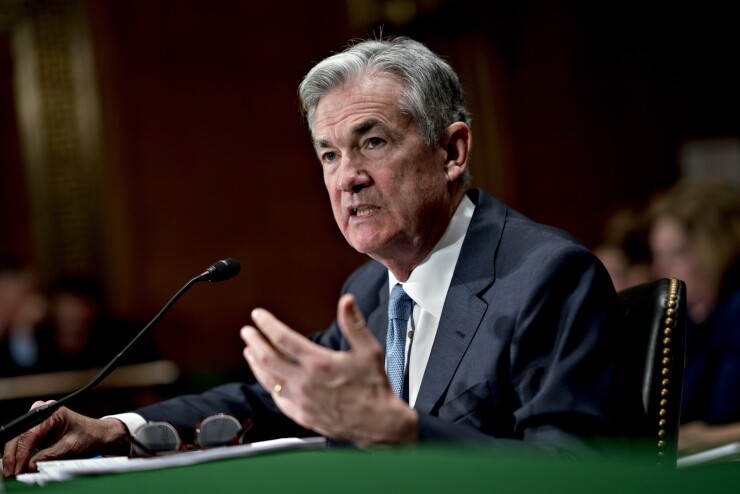Want unlimited access to top ideas and insights?
Federal Reserve Chairman Jerome Powell said Friday morning that he would not resign his post if asked to do so by the president, adding that he has not received any direct communications from the White House regarding his tenure leading the central bank.
Asked during a conference of the American Economic Association in Atlanta whether he would resign if requested by the White House, Powell answered simply: “No.”
He added that he has not been asked to resign and has had no direct communications with the White House and does not have any imminent plans to meet with the president, though he said such a meeting would be consistent with precedent.

"The Committee has stated that we do not expect it will be appropriate to reduce the target range for the federal funds rate until we have gained greater confidence that inflation is moving sustainably toward 2%."
“Meetings between presidents and Fed chairs do happen,” Powell said. “I can’t think of any Fed chairs who didn’t eventually meet with the president. But again, nothing has been scheduled and I don’t really have anything to report on that.”
Powell added that the public should be aware that the Fed as an institution is committed to conducting monetary policy without considering political ramifications — and that culture extends beyond the chairmanship.
“People should know that the Fed has a very strong culture around nonpolitical activity,” Powell said. “We are committed to achieving the goals that the law gives us, and we are committed to doing so in a completely nonpolitical way ... and we are always going to do that. I would want the public to be assured that we have a strong culture. It’s not a fragile one. It’s not subject to being disrupted. We will always do things that way.”
Powell’s comments came in response to a
There is some
Former Fed Chair Janet Yellen, speaking on the same panel as Powell and former Fed Chairman Ben Bernanke, said that presidents in the past have avoided commenting on Fed monetary policy decisions, and she believed the president’s criticism of the Fed could shake the market’s confidence in the Fed’s independence.
"Obviously, the president has the right to comment on the Fed, but I would worry that if it continues and intensifies, it could undermine confidence in the Fed and the market’s confidence in the Fed’s judgments,” she said.
Bernanke agreed, saying the Fed’s independence has traditionally been helpful to presidents because it shields them from any political liability for monetary policy decisions.
“On a few occasions, in fact, President Obama wryly commented to me that he had been criticized abroad for Fed actions, and he had to tell them, ‘No, in fact, that really is not our bailiwick,' " Bernanke said. “I think it worked well.”





